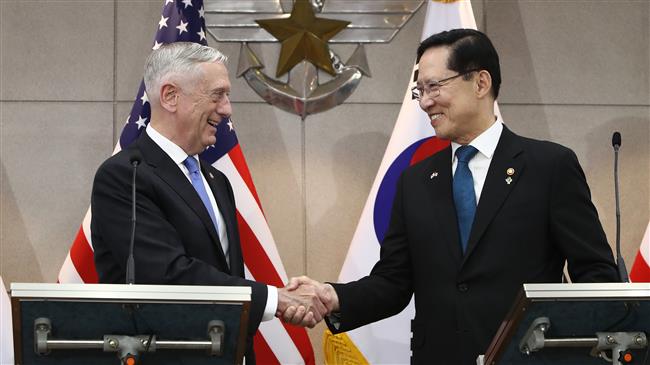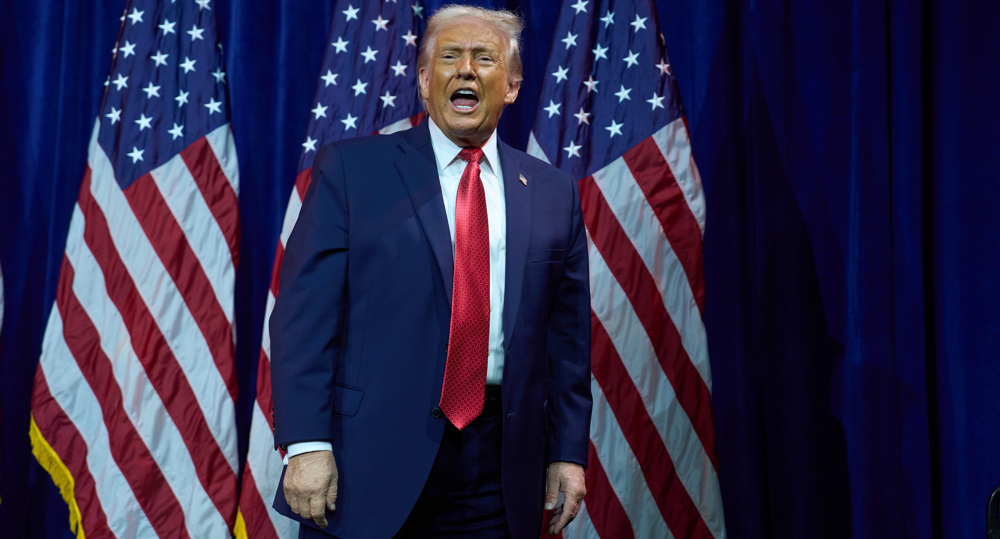US says has ‘ironclad’ commitment to South Korea’s security
US Defense Secretary Jim Mattis says the United States has an “ironclad” commitment to South Korea’s security and will maintain its current number of troops on the Korean Peninsula, despite the suspension of some joint military drills with Seoul.
The Pentagon chief made the comment during a brief visit to Seoul on his way from China to Japan on Thursday.
“The US commitment to the Republic of Korea remains ironclad, and the US will continue to use the full range of diplomatic and military capabilities to uphold this commitment,” Mattis told his South Korean counterpart, Song Young-moo.

Mattis also defended US President Donald Trump’s decision this month to suspend large-scale “war games” with South Korea.
“The recent decision to suspend the Freedom Guardian exercise creates increased opportunity for our diplomats to negotiate, increasing prospects for a peaceful solution on the Korean Peninsula,” the US defense secretary said.
The suspension of the joint military drills with South Korea came after Trump’s landmark summit with North Korean leader Kim Jong-un in Singapore on June 12.
In the Singapore summit, the US and North Korea committed to working “toward complete denuclearization of the Korean Peninsula.” Trump later said he would end the “provocative” US-South Korea military exercises, and the two countries proceeded to suspend a range of their “large-scale” military drills.
During the Thursday meeting, Song said Kim’s separate meetings with Trump and with South Korean President Moon Jae-in had laid the foundation for permanent peace in the region.
“If North Korea maintains its commitment to denuclearization and proves its willingness with actions, we will continue to devise measures to build mutual trust and establish peace,” he told Mattis.
After discussions with top Korean officials, Matiis will fly to Tokyo on Thursday night for a day of meetings with Japanese officials.
The annual drills between the US and South Korea and also Japan have in the past been a major source of tension on the Korean Peninsula but have also been considered by Seoul and Tokyo as a bulwark against perceived North Korean threats.
Japan has reacted with concern at Washington’s plans to end the military exercises, saying the drills are vital for East Asian security. But Tokyo has had to get along, as it is heavily dependent on the US both politically and militarily.
The scrapping of the drills and the removal of US forces from the region has long been a North Korean demand.
The US has about 28,500 service members stationed in South Korea.
VIDEO | Press TV's news headlines
Trump floats ‘Dream Military’ fueled by record $1.5-trillion budget
Iran: US interventionism aimed at inciting violence, terrorism
VIDEO | Tunisian parties denounce Trump’s foreign policy as violation of intl. law
Trump’s immigration crackdown turns deadly; president says killer acted in ‘self-defense’
VIDEO | Trump renews highly aggressive rhetoric towards Iran
VIDEO | Transatlantic tensions: Greenland
VIDEO | Yemen’s Saudi-backed government expands control amid coalition strikes on separatists











 This makes it easy to access the Press TV website
This makes it easy to access the Press TV website